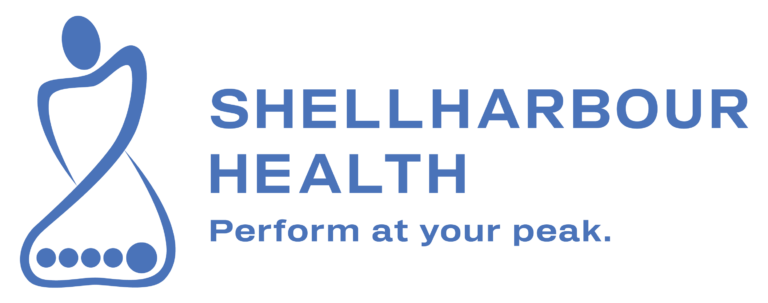Have you ever wondered how what you ingest can improve your osteoarthritis (OA)? Glucosamine chondroitin, fish oil… What really does work?
Here we explore the updated evidence on diet and supplementation in arresting the OA disease process.
But what really is OA?
Long thought to be a mechanical disorder, caused by wear and tear over the years, osteoarthritis is now understood to be the result of a combination of factors including injury, weight, genetics, systemic inflammation, diet, activity levels and joint kinematics. These conditions lead to breakdown of the synovial joint articular cartilage (joint lining) causing perpetual localised inflammation and progressive exposure of the joint surfaces.
Dietary factors can play a role in reducing the ‘mechanical’ and ‘inflammatory’ aspects of OA. Let’s take a look.
Weight/ Body Composition
Research shows that high body mass index (BMI) and lean body mass leads to a higher likelihood of OA. For example, in 2019 a secondary analysis of the IDEA (Intensive exercise and diet for arthritis) study found that the more weight people lost decreased their pain and increased their function. This is supported by a systematic review and metanalysis by Robson et al in 2020 of weight loss effectiveness in hip and knee OA. They found compared to minimal care, weight loss intervention reduces pain and disability in people with OA. Thus, for the early stages of OA, moderate calorie restriction combined with exercise can have positive outcomes. Leyland et al 2016 also found that increased weight and BMI are strongly associated with increased risk of total knee replacement (overweight > 40% obese 100%) However, whilst weight is strongly associated with risk of OA and TKR surgery there is no causal link between the two. Weight control can improve OA outcomes by reducing joint inflammation and loading.
MACRONUTIRIENTS
PROTEIN
Protein intake is of course associated with body building. De Warte et al 2019 assessed the protein intake of 1316 OA patients and then measured upper leg strength. They found a linear regression that low protein was associated with low muscle strength. Whilst a causal relationship cannot be implied, meeting RDI for protein may optimise strength gains coupled with other health benefits. Good sources of protein include lean meats such as red meat, poultry, fish and seafood, as well as eggs, dairy products, legumes, nuts and seeds.
CARBOHYDRATES
Carbohydrates provide our energy source and allow protein and fat to do their job. Good carbs such as whole grains, fruits and veggies can be utilised to minimise the energy deficit associated with a calorie restriction diet. Equally excessive high GI, sugary, processed foods should be avoided as they may potentially trigger inflammation. Whilst carbohydrates may indirectly impact the OA journey there is no clear link to pathophysiology.
- Fibre
Equally, Fibre cannot be considered an OA treatment. Fibre is plant derived food not fully broken down by the human digestive enzymes. It improves insulin sensitivity, cholesterol profiles and gut microbiomes which help control adiposity but there is no direct link to osteoarthritis. Further studies are required in this area to derive an association. Two large cohort studies with suboptimal fibre intake (< RDI) have been shown to reduce the onset of OA. Good sources of fibre include fruits, vegetables, legumes, wholegrain breads and cereals (seeded and sourdough breads, rice, pasta, oats, quinoa, barley, psyllium), nuts and seeds.
FATS
Saturated fats, being omega 7 and 9, are widely known as pro inflammatory and the bad guys, however this is potentially over reductionist. A Californian observational study looked at X-rays and dietary fatty acids via block brief food frequency at intervals over 4 years. They found that increased saturated and total fat intake were associated with accelerated OA. Saturated fats should contribute no more than 11% total calories. Overall, decreasing saturated fats and increasing unsaturated fats can have positive effects on managing OA.
Unsaturated fats include omega 3 and 6. As well publicised, omega 3 rich foods such as oily fish (mackerel tuna salmon anchovies), green leafy vegetables and seeds (chia, flax, pumpkin) are beneficial for OA as they help reduce inflammation in the body. Omega-6 fats are essential fats that provide energy for the body and are found in many processed foods, vegetable oils (sunflower, corn, soybean), mayonnaise, walnuts, pine nuts, tofu and vegetable shortening, however, omega-3s should be consumed more than omega-6s. It is more effective to increase omega 3 than reduce omega 6 intake. Supplementation with omega-3 may be effective in this instance.
- Cholesterol
Dietary cholesterol levels play a role in the development of OA. A recent study investigating the link between cholesterol levels and OA development found that LDL or ‘bad cholesterol’ is linked to processes such as synovial inflammation, cartilage destruction and ectopic bone formation which lead to OA. It concluded that lowering levels of bad cholesterol can be an effective treatment for OA. The treatment of high cholesterol with cholesterol lowering statins have been found to have a suppressive effect on OA development.
Food sources of HDL or ‘good’ cholesterol include soybean, sunflower, safflower, canola oil and margarine spreads made from these oils; cooking oils made from plants or seeds, including: olive, canola, peanut, sunflower, soybean, sesame and safflower; avocados; olives; unsalted nuts such as almonds, cashews and peanuts, pine nuts, walnuts and Brazil nuts; fish; tahini (sesame seed spread) and linseed (flaxseed) and chia seeds.
Food sources of LDL include foods that contain unhealthy fats (saturated, trans fats) such as full fat dairy, butter, cream, processed and deli meats, fat and skin on meat, deep fried foods, baked goods and sweets, coconut oil, palm oil and hydrogenated and partially hydrogenated vegetable oils. These foods should be limited in the diet to prevent and manage OA. Consuming a high fibre diet can help trap bad cholesterol and prevent it from being absorbed by the body.
References available on request Our Dietitians and Physiotherapists are available Monday to Saturday and can provide tailored advice to optimize your health.



